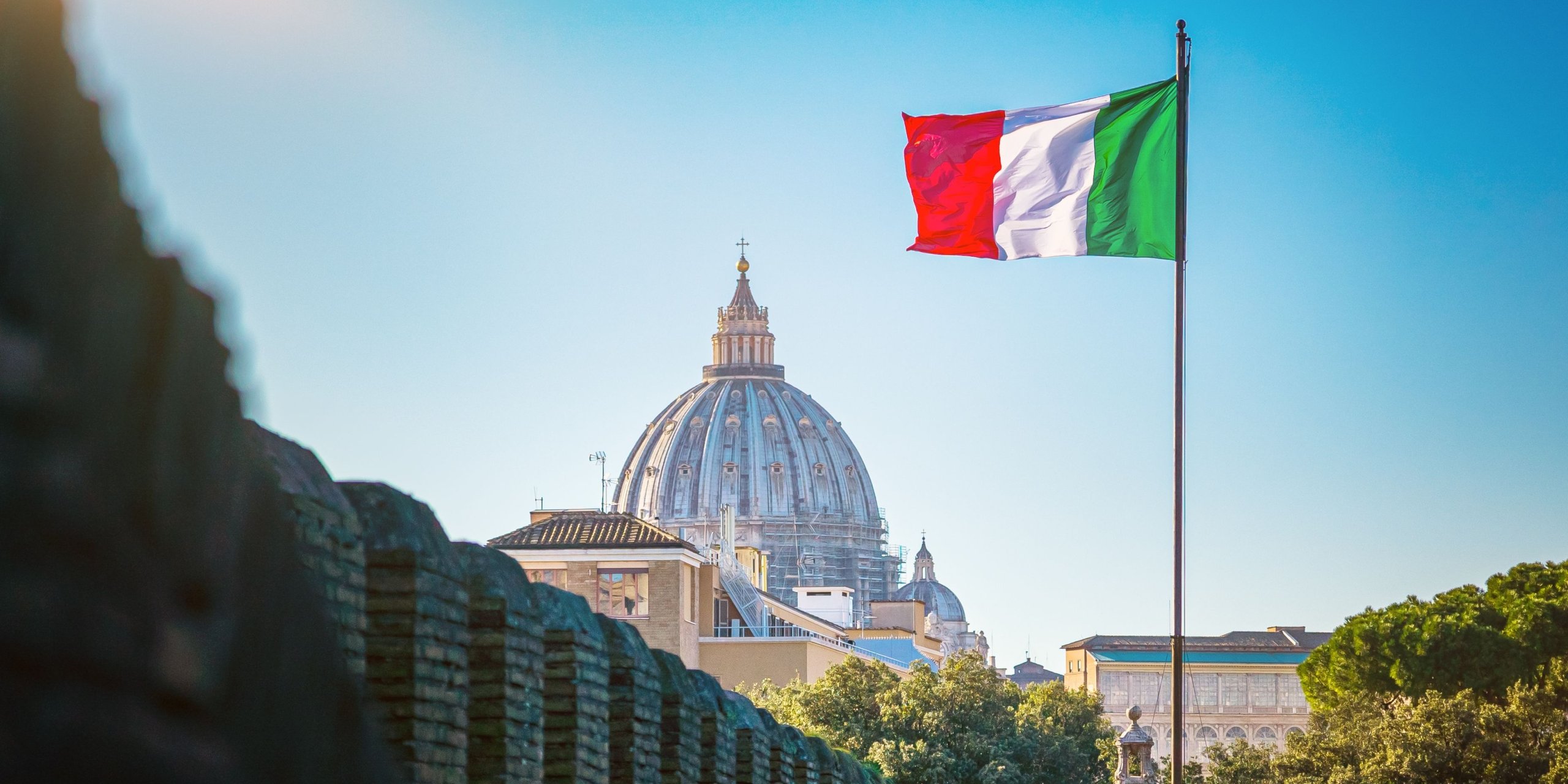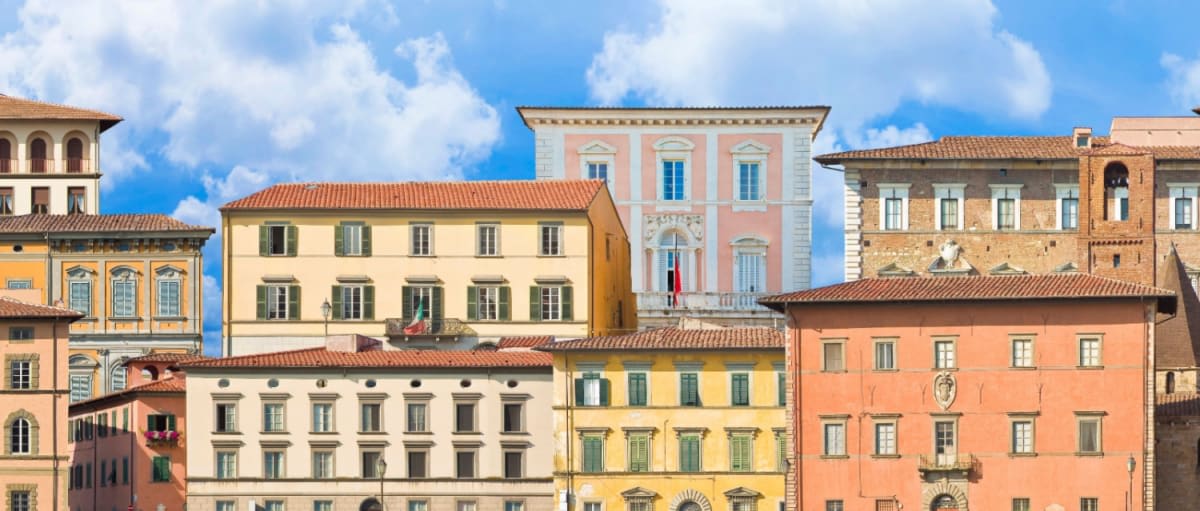Once you have a visa to live in Italy, or don’t need one as an EU citizen, you must still get your residency documents organised. Here is how to get your residency in Italy.
Buying a property in Italy as a foreign buyer does not automatically provide residency rights. If you intend to make your new property your permanent residence, you will need to apply for a visa followed by residency status.
Unlike some nations, Italy does not offer a “golden visa” or residency-by-investment option linked to real estate purchases, as seen in Spain and Greece. However, it does offer a golden visa based on other kinds of investments.
Download the golden visa guide
For most non-EU nationals, however, there are options requiring considerably less money.
Obtaining residency in Italy as an EU citizen
EU citizens do not require a visa to live in Italy. However, if your stay exceeds three months, you must apply for residency. This process involves registering with the local registry office (anagrafe).

To initiate your residency application:
- Visit the Patrionati office at your local commune with your completed application and required documentation (details below).
- Alternatively, you can pick up an application kit from the post office, which includes two forms, guidelines and a prepaid envelope.
Tip: Make photocopies of your application for your records before submission.
Obtaining residency in Italy as a non-EU citizen
Non-EU citizens are classified as third-country nationals and must obtain a visa before applying for temporary residency if their stay extends beyond 90 days within any 180-day period. You may apply for permanent residency after five continuous years in Italy.
Step 1: Visa application
As a non-EU citizen, you will need a visa for an extended stay. This requirement now applies to UK nationals post-Brexit. The specific visa type will depend on your intended activity, such as work, study, or retirement.
Step 2: Residency permit
Upon obtaining your visa and arriving in Italy, you must request a temporary residency permit (Permesso di Soggiorno) within eight days. This permit legalizes your stay in Italy for the duration specified by your visa.
Step 3: Registration
Once you secure your residency permit, register with the local registry office (anagrafe) in your chosen municipality.
Essential documents for residency application in Italy
When applying for residency, ensure you are prepared with the following documents:
- Your passport
- Four passport-sized photographs
- Your Codice Fiscale, which you can obtain from the Agenzia delle Entrate (Italian Revenue Agency). Visit your local revenue office with your passport for assistance.
- If you are not employed, provide proof of sufficient financial resources, typically through a bank statement that meets the Italian minimum annual social security allowance. If you do work, submit proof of income.
- A valid private health insurance policy covering at least one year.
- If you have purchased a property, present your property deeds to register this as your primary residence. The size of the property will also influence the TARI— the local waste disposal tax.
Staff at the office will assist with completing forms and photocopying necessary documents. You will need to pay for a revenue stamp and may incur additional administrative fees, varying by locale. Non-EU family members of EU citizens must also provide an EC Long-Term Residence
For expatriates aiming to establish long-term residence in Italy, familiarity with the relevant processes is essential. This guide outlines how to apply for a residency permit, the advantages it brings, and crucial aspects of maintaining your residency status—especially for non-EU nationals.
Residency verification process
After submitting your residency application, local authorities will confirm your residency status. This involves an unannounced visit from a police officer to verify that you are residing at the property you indicated.
This visit can occur at any point during the day and are typically brief, lasting about five minutes. The officer will engage in a quick conversation and may ask you to sign a form to acknowledge your presence.
How to apply for a residency permit
If you’re arriving from outside the EU, such as from the UK, you must apply for an Italian Residence Permit (Permesso di Soggiorno) within eight days of your arrival if you wish to stay long-term. The steps for this application include:
- Visit an authorised post office (Sportello Amico) to collect and complete the necessary application kit.
- Seek assistance at various municipal offices or authorised institutions that offer guidance free of charge.
- Once you submit your application, the post office will give you a receipt containing two personal identification codes (user ID and password) to track your application status on the Immigration Portal.
- You will then have an appointment at the police headquarters (Questura) where you must bring original documents and prepare for fingerprinting.
- The Questura will inform you when your Residence Permit card is ready for collection.
Benefits of obtaining a residence permit in Italy
Acquiring a residence permit is not just a legal requirement; it also offers several significant benefits:
- Lower property tax: When purchasing your home, you will enjoy a reduced purchase tax rate. If you commit to applying for residency within 18 months, the tax on your primary residence decreases to 2% of the cadastral value, compared to 9% for second homes and luxury properties.
- Reduced council tax: You will be liable for council tax (IMU/Tasi) only on your primary residence if classified as a luxury property.
- Healthcare access: As a resident, you can enrol in the national health service and receive health benefits similar to Italian citizens. Registration grants you access to the Tesserino sanitario personale (Italian Health Insurance Card), enabling access to many public health services at low or no cost.
- Discounted electricity rates: Utilities like Enel may offer reduced rates to residents.
- Identification card: The Carta d’identità serves as your principal form of identification within Italy and can substitute for your passport when necessary.
Identification and documentation requirements
All residents in Italy, including expatriates, must carry photographic identification at all times. This practice becomes a part of daily life, so it’s advisable to settle into the habit early. Most individuals opt to carry their residency card. If you drive in Italy, ensure that your residency card is with your driving licence, vehicle registration, and proof of insurance while in your vehicle.
Tax residency in Italy
Being resident for tax purposes is different to other types of residency. The general rules – i all countries, not just Italy – is that you are tax resident wherever you spend more tha half your time: 183 days per year. However, therre are other considerations, especially for those hyper-mobile individuals traveling gthe world. So you are considered a tax resident in Italy if:
- you have a permanent home or principal place to stay in, in Italy, where you spend most of your time,
- you are employed, or carry out an occupation, in Italy,
- your centre of economic interest is Italy.








